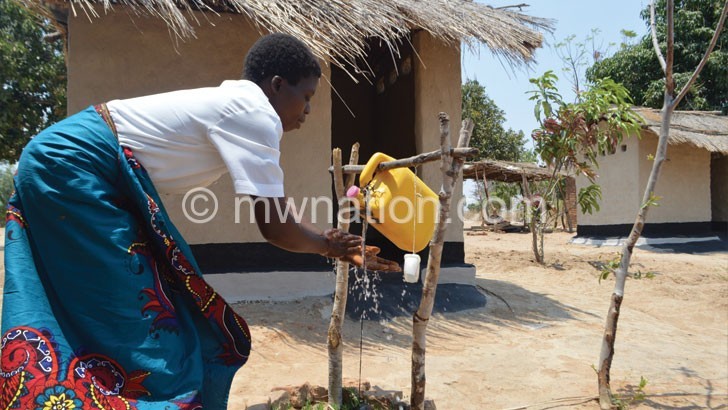Sanitation for health
Did you know that over half of outpatients in the country’s hospitals seek treatment for diseases caused by poor sanitation?
This is the reason Ellen and Maxon Malijeni, from Msinja Village, were all smiles when the Ministry of Health certified that people in Traditional Authority (T/A) Masula have stopped defaecating in the open.

“Previously, it was normal to see people rushing to nearby bushes to relieve themselves. We used to see them carrying hoes as they went to dig shallow pits and bury faeces, says Maxon as his wife nods.
The tobacco-growing community constantly suffered diarrhoea and cholera outbreaks, reducing the time people spend in their crop fields.
Not anymore.
Masula becomes Lilongwe’s fourth T/A to attain the enviable status, thanks to a consensus to ensure every family uses a latrine.
Only 110 T/As nationwide—including Kalumbu, Mtema and M’bang’ombe in the central district—have made the shift.
In Masula, neighbours warn each other against the dangers of receding to open defaecation.
“When we built our first latrine, we had people from over ten households queuing to use the same. Now all of them have built their own,” recalls Ellen.
Currently, nearly every household in T/A Masula has a clean latrine complete with a drop-hole cover and a hand-washing facility.
This mirrors the country’s steps towards achieving Sustainable Development Goal (SDG) Six on ensuring access to water and sanitation for all by 2030.
Despite the inroads to eliminate sanitation-related diseases, over half of the villages in the country still harbour people who defaecate in the open.
In 2008, government adopted a community-led total sanitation (CLTS) to close the gaps in water, sanitation and hygiene that fuel preventable diseases.
Group village headman Chapsinja from T/A Masula urges government and development partners to make open defaecation history in all villages to make Malawi disease-free.
“For most of us, our way of life was disgraceful. It was acceptable to use a latrine, but we now realize the benefits of toilet use. It keeps away preventable diseases,” he says.
Last year, a cholera outbreak attacked almost 1 000 people and killed 33 in 13 districts, including Lilongwe.
Despite commendable inroads in the global goals to ensure universal access to sanitation, the World Health Organisation (WHO) estimates that one in five children die from diarrhoeal-related illnesses. The death rate is higher than that of Aids, malaria and measles combined.
Mineral and Appropriate Technology Applicable in Malawi (Matama) has been working with Masula residents to create a safer environment for all.
Matama board chairperson Lucky Penumulungu said the organisation has constructed 14 156 traditional latrines in the area, increasing access to latrines from 26 percent to 97 percent. “It was not an easy task bringing everyone to understand why they had to stop open defecation. Some villages were very difficult and sometimes humiliated the extension workers and community volunteers,” he says.
But Ministry of Health chief director Beston Chisamile is excited with the inroads to eliminate open defaecation as over 50 percent of the country’s disease burden is attributable to sanitation-related factors.
“Malawi has made strides in creating an open defaecation-free nation, with 73 percent of all villages working towards the status attained by Masula and over 44.7 percent now having achieved ODF status,” he says.
However, heavy rains pose a big threat to the fragile success as floods in some districts reduce latrines to rubble.
The rivers bursting their banks also increase the risk of sanitation diseases as they wash human waste from bushes into communities, contaminating food and drinking water in the process.
This is more the reason the Malijenis and their neighbours in Msinja and surrounding villages are happy to be out of harms’ way.





